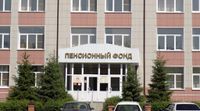In 2025, the landscape of retirement in Russia is set to undergo significant changes, as the government announces a temporary suspension of retirement on general grounds. This means that eligible citizens will not be able to access their страховой pension until 2026, creating a wave of uncertainty for many approaching retirement age.
According to the Social Fund of Russia, to qualify for a страховой pension in 2025, individuals must meet three mandatory conditions. Firstly, they must reach the established retirement age, which is 64 years for men and 59 years for women. Secondly, they must have a minimum of 15 years of insurance experience. Lastly, they need to accumulate at least 30 pension coefficients during their working life.
The current value of one pension coefficient is set at 145.69 rubles, while the fixed payment to the страховой pension for old age is stipulated at 8,907.70 rubles. These figures underscore the financial parameters within which future retirees must navigate their planning.
Senator Olga Epifanova clarified that the suspension of retirement on general grounds in 2025 is due to the peculiarities of the transitional period of the pension reform. As a result, even those who reach the retirement age in 2025 will only be able to file for pension payments in 2026.
Experts have weighed in on the implications of these changes. Mikhail Belyaev, a candidate of economic sciences and financial analyst, emphasized that the страховая pension consists of two parts. The first part is a fixed sum, which, as mentioned, is 8,907.70 rubles for 2025, while the second part varies based on the individual's length of service and salary.
Belyaev pointed out that for individuals to accumulate the necessary pension points, it is essential to have a "white" salary, which refers to officially reported income. This aspect is crucial, as the final pension coefficient is directly tied to the amount earned throughout one’s career.
For those who find themselves falling short of the required points or work experience, Belyaev noted that it is possible to purchase the necessary pension points, although he cautioned that this option is not a cost-effective solution.
If individuals are unable to fulfill all conditions for receiving a страховой pension, they will be eligible for a social pension; however, this will be granted five years later than the standard retirement age.
Yaroslav Nilov, Chairman of the State Duma Committee on Labor, Social Policy, and Veterans Affairs, highlighted that, under current regulations, an individual can earn a maximum of 10 pension points per year. Non-working pensioners, on the other hand, are limited to earning no more than three points annually. It’s worth noting that pension points can also be accrued during non-insurance periods, such as military service, childcare leave, or caring for elderly or disabled individuals.
The changes in the pension system come amidst broader discussions about economic stability and the future of social welfare in Russia. As the government prepares for the implementation of these reforms, many citizens are left wondering how they will be affected.
With the new rules set to take effect, there is a growing urgency for individuals nearing retirement age to understand the implications of these changes on their financial futures. The transition period is expected to be challenging, and many are seeking clarity on how to navigate the new requirements.
As the year unfolds, the government has also announced that starting January 1, 2026, a new indexing procedure for страховые pensions will come into force. This new system will involve recalculating pension payments in February based on the previous year's inflation rates, followed by another adjustment in April that will consider the growth of the wage fund.
This reform aims to ensure that pensions remain relevant and reflective of the economic environment, although it also raises questions about the adequacy of support for retirees in the face of rising living costs.
In summary, the temporary suspension of retirement on general grounds in 2025 has significant implications for those looking to retire. With the requirement to meet specific conditions, including age, work experience, and pension points, many will need to reassess their retirement plans. The government’s decision to delay access to pensions until 2026 adds another layer of complexity, prompting citizens to seek guidance and prepare for a future that may be less certain than previously anticipated.






